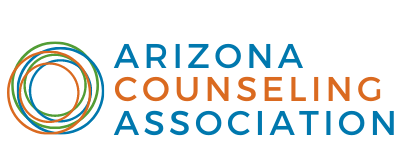
So Much Trauma; So Little Time
- Registration Closed
Trauma exists in every population to some degree and is often an underlying event of mental health and emotional issues. The treatment of trauma is crucial for human development and can reduce the occurrence of mental health and physical issues. This presentation will supply information based on current research of the effects of trauma and its prevalence in substance use disorders. It will also identify the source of trauma for many with substance use disorders. The presentation will include the prevalence of early life trauma and discuss the traumatic events that often occur with addiction such as criminal activities, assault, suicide, overdose, homelessness, and arrests to name but a few. The purpose of addiction recovery is to develop skills for long term abstinence, but for some with PTSD and traumatic stress the coping skills for sensations and images related to life experiences remains drug and alcohol use. Participants will be asked to discuss current treatments used in their practice and efficacy of therapeutic models. The presentation will identify the risk of burn-out and secondary trauma experienced by counselors treating clients with trauma or traumatic stress. Information will be provided about current trauma treatments with emphasis on an eye-movement treatment called Accelerated Resolution Therapy (ART). ART is an evidence-based therapy recognized by SAMHSA, the VA and the Department of Defense. The treatment is reported by clinicians and clients to be less stressful and less intrusive. Research has demonstrated that this modality is a briefer protocol than other treatments. It was also found to be more effective than other treatments in a study by the University of Southern Florida. ART will be compared to other eye-movement, cognitive, and exposure therapies. The program outcomes include education of ART to reduce traumatic stress, and to explain the benefits of decreased sensation to improve likelihood of long-term sobriety. Attendees will have an improved understanding of trauma with addiction and the need to increase counselor trainings and availability of trauma informed care for patients in treatment facilities. All attendees will be provided with resources and references from the presentation and access the presenter for further questions.
Objectives:
- Identify the prevalence of trauma in substance use disorders, and the types of traumatic events that occur in addiction
- Identify and discuss the relapse rates for persons with traumatic stress
- Discuss current treatments in residential facilities and the lack of trauma informed care
- Inform participants of the benefits Accelerated Resolution Therapy as a brief treatment intervention with positive results
Jerome Ehmann is a licensed substance abuse and mental health counselor working with patients in a residential treatment center who have reported traumatic stress. Previously Mr. Ehmann was employed in an outpatient program where he helped to develop programming for the intensive outpatient and partial hospitalization programs and introduced trauma therapy to the program. He is trained in EMDR therapy and Accelerated Resolution Therapy (ART) and stresses the treatment of underlying conditions and past traumas when working with his patients. He is a member of multiple professional, specialty, and academic organizations and is board certified by the NBCC. He holds a BS in Psychology and a Master of Science in Clinical Mental Health Counseling from the University of Phoenix. He is currently studying for a PhD in Counseling Education and Supervision at Capella University. Mr. Ehmann has presented on trauma and emerging methods to first responders, counselors and social workers, and the Arizona Conference of Let’s Get Better Together. He is committed to reducing the physical and emotional distress that occurs with trauma.